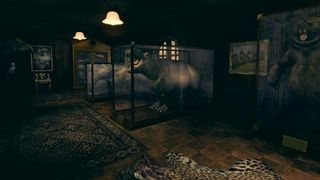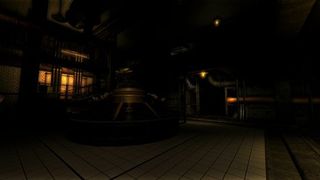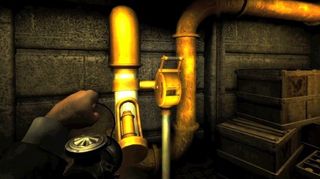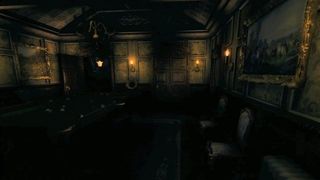Amnesia: A Machine for Pigs interview: we talk to the devs about their scarefest sequel

As reported earlier , The Chinese Room have released the latest trailer for Amnesia: A Machine for Pigs, the follow-up to Frictional Games' deeply unsettling Amnesia: The Dark Descent. Set in Victorian London, some sixty years after the events of the first game, Pigs isn't a straight continuation of that story, but a wholly new tale set in the same universe. That doesn't mean it won't be looking to recapture the same sense of giddy terror that the Dark Descent induced in its hapless, cringing players, however. We got in touch with The Chinese Room's boss-man and creator of Dear Esther, Dan Pinchbeck, to discover how the scares shake down.
“It's fairly true to the spirit of the original game,” says Pinchbeck. “There's a definite case of 'don't fix what isn't broken'. We're not going to be arming the player up at all - you're still going to be hiding for most of it and running and peaking and not wanting to open doors and things like that. I think that's kind of the core spirit of the game really, so we don't want to take that away from the player.”
That said, Pinchbeck hints at some intriguing changes: “We've tried to do some stuff which will keep the player on their toes a little bit, to stop them from being able to play the same way. So there's changes to the way some of the things behave in the game. It's difficult to talk about that without giving too much away really.”

What can be revealed is that Pigs' relocation to the turn of the 20th century alters much of the aesthetic and philosophy of the game.
“It's New Year's Eve 1899,” says Pinchbeck. “Because it's set later than Dark Descent, there's an awful lot you can do in terms of technology. The game focuses on industrialisation, so there's an awful lot of machinery you can bring into the game; brilliant factories and engines and all those new power sources. You have this mix between invention and science exploding, and this real obsession with the supernatural, the occult and spiritualism all at the same time."
“By catapulting the game into the industrial period," continues Pinchbeck, "instead of magicians we have the early capitalists and empire builders. What would they make of this supernatural stuff if they got their hands on it? And that in itself is such an interesting thing to play around with.”
Your own character embodies this tension, a wealthy industrialist called Oswald Mandus.
PC Gamer Newsletter
Sign up to get the best content of the week, and great gaming deals, as picked by the editors.
“Part of the game is him picking out his own path, and kind of understanding who he is, where he's come from and what's going on. As it progresses hopefully the player will, in a similar way to Amnesia, feel like they're descending not just into an underground labyrinth, but into the head of the character. We have an absolutely fantastic villain, too, that I'm really really pleased with and very proud of, who I think is maybe even deeper and more than Alexander was in Dark Descent.”

So, being set in Victorian London, do we get to meet any other Victorian Londoners? Pinchbeck says we do, suggesting that there won't be quite the sense of isolation that its predecessor explored.
“We've just taken delivery of a couple of what have been codenamed 'civilians' at the moment,” he says. “So yeah, there's a bit more evidence of humanity. It's not just you and the Grunts in the way that Dark Descent was. We definitely have more of a sense of a hope, of life in the setting. It's important to us as a company to get that atmosphere of a real, deep, engaging world and place. We want to create the impression that you are, as the player, sitting there in Victorian London and the world is moving around you; you're not holed up in isolation in the middle of nowhere with no one else about.”
Although it uses a modified version of the HPL 2 engine used for Dark Descent, Pigs will be pushing it to its limits to render this more expansive setting.
“We have about five things,” says Pinchbeck, referring to the game's varied locales. “We just started scripting on our exterior thing - our big exterior level, which is really nice. The player moves from building to building - there are outside linking sections, there are scenes that take you away from the streets, which is really nice. So it's less like one single building and more of a complex.”

If this more mechanised world and bustling cityscape sound like a departure from Dark Descent's lonely, claustrophobic medievalism, then Pinchbeck guarantees a throughline between the two stories, even if it's not an explicit sequel in a narrative sense.
“It's set within the same universe, so there are references to things which happen in Dark Descent, and players who played Dark Descent might spot a continuation of the kind of ideas that were in the first game. But it's completely unrelated, the central plotline of it. So, I guess you could say that quite a few of the Lego bricks are shared with Dark Descent, but we're making very different things out of them. If that's not too pompous a metaphor.”
Most Popular







